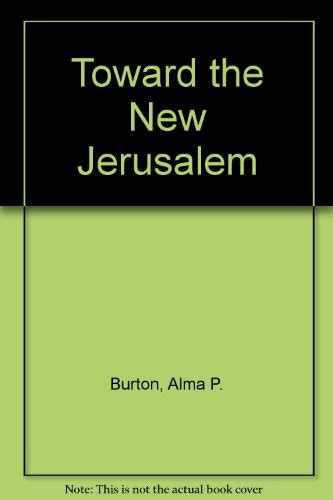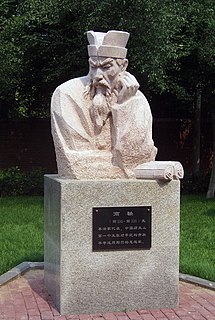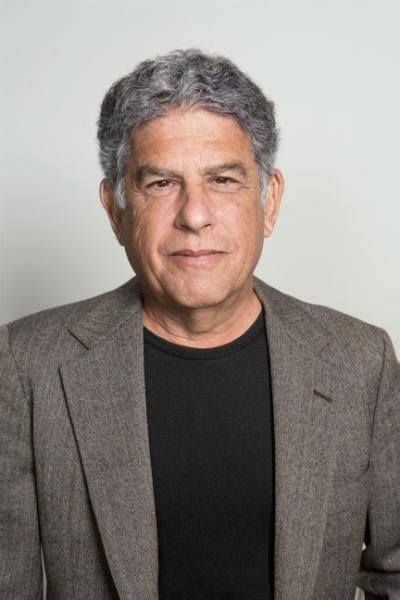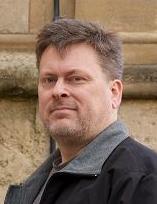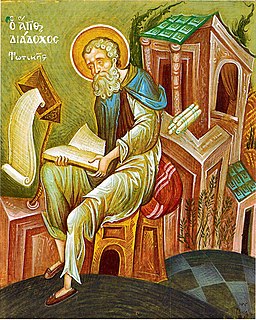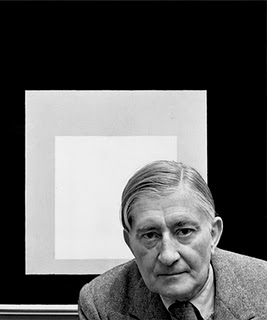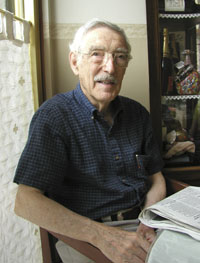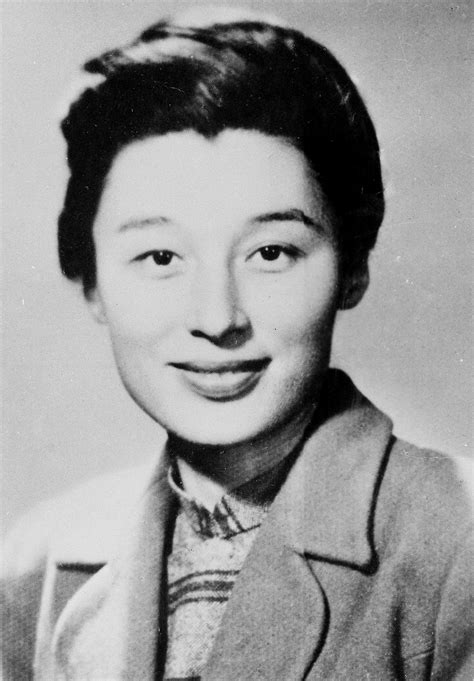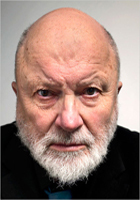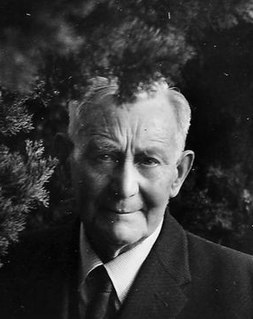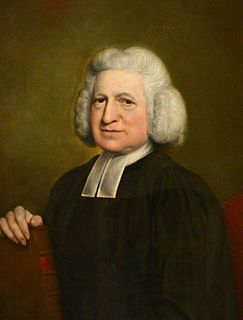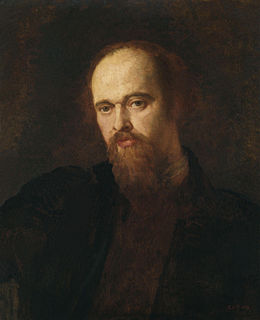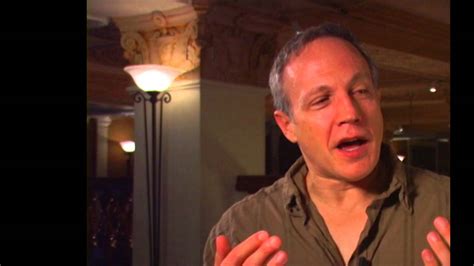Top 1200 Thus Quotes & Sayings - Page 2
Explore popular Thus quotes.
Last updated on April 17, 2025.
John declared that "Christ received not of the fulness at the first," but that he "continued from grace to grace until he received a fulnesss and thus he was called the Son of God, because he received not of the fulness at the first." Thus is it with us all. We must work out our salvation and exaltation by coming to this earth. Man must be born into mortality and live and die that he may continue in his progress toward eternal life and exaltation.
In every moment we make a decision -- whether conscious or unconscious. Will I choose to open my heart, send love, withhold judgment and thus free myself from fear? Or will I close my heart, project fear instead of extending love, judge others, and thus bind myself to fear? The choice is mine and mine alone.
The popularity of disaster movies expresses a collective perception of a world threatened by irresistible and unforeseen forces which nevertheless are thwarted at the last moment. Their thinly veiled symbolic meaning might be translated thus: We are innocent of wrongdoing. We are attacked by unforeseeable forces come to harm us. We are, thus, innocent even of negligence. Though those forces are insuperable, chance will come to our aid and we shall emerge victorious.
Man's ignorance of the Law of Love in personal and world relationships will not serve as an excuse to save him from disaster. Wealth cannot be acquired from others by might, for wealth thus taken will impoverish him who takes anything which is not given. Nor can power be thus acquired, for the weakness of the despoiled will prevail against the might of the despoiler.
Thus the brave and aspiring life of one man lights a flame in the minds of others of like faculties and impulse; and where there is equally vigorous effort, like distinction and success will almost surely follow. Thus the chain of example is carried down through time in an endless succession of links--admiration exciting imitation, and perpetuating the true aristocracy of genius.
A place (lieu) is the order (of whatever kind) in accord with which elements are distributed in relationships of coexistence. It thus excludes the possibility of two thing being in the same location (place). The law of the 'proper' rules in the place: the elements taken into consideration are beside one another, each situated in its own 'proper' and distinct location, a location it defines. A place is thus an instantaneous configuration of positions. It implies an indication of stability.
As our lives speed up more and more, so do our children's. We forget and thus they forget that there is nothing more important than the present moment. We forget and thus they forget to relax, to find spiritual solitude, to let go of the past, to quiet ambition, to fully enjoy the eating of a strawberry, the scent of a rose, the touch of a hand on a cheek...
Now while they were thus drawing towards the gate, behold, a company of the heavenly host came to meet them; to whom it was said by the other two Shining Ones, These are the men that have loved our Lord when they were in the world, and that have left all for his holy name; and he hath sent us to fetch them, and we have brought them thus far on their desired journey, that they may go in and look their Redeemer in the face with joy. Then the heavenly host gave a great shout, saying, 'Blessed are they that are called to the marriage supper of the Lamb.'
The acts of the mind, wherein it exerts its power over simple ideas, are chiefly these three: 1. Combining several simple ideas into one compound one, and thus all complex ideas are made. 2. The second is bringing two ideas, whether simple or complex, together, and setting them by one another so as to take a view of them at once, without uniting them into one, by which it gets all its ideas of relations. 3. The third is separating them from all other ideas that accompany them in their real existence: this is called abstraction, and thus all its general ideas are made.
Whatever thought grips the mind at the time of death is the one which will propel it and decide for it the nature of its future birth. Thus if one wants to attain god after death, one has to think of him steadfastly... This is not as simple as it sounds, for at the time of death the mind automatically flies to the thought of an object (i.e. money, love) which has possessed it during its sojourn in the world. Thus one must think of god constantly.
Dawkins’s problem is that he doesn’t know the difference between probabilistic empirical theorizing and strict metaphysical demonstration, and thus misreads an attempt at the latter as if it were the former. That is not to say that Aquinas might not be mistaken at some point in the argument – though obviously I don’t think he is – but if you’re going to show that he is, you first need to understand what kind of argument he is giving, and thus what kind of mistake he’d be making if he’s made one at all.
Waves of hands, hesitations at street corners, someone dropping a cigarette into the gutter-all are stories. But which is the true story? That I do not know. Hence I keep my phrases hung like clothes in a cupboard, waiting for some one to wear them. Thus waiting, thus speculating, making this note and then an· other I do not cling to life. I shall be brushed like a bee from a sunflower. My philosophy, always accumulating, welling up moment by moment, runs like quicksilver a dozen ways at once.
There are some good things to be said about walking. Not many, but some. Walking takes longer, for example, than any other known form of locomotion except crawling. Thus it stretches time and prolongs life. Life is already too short to waste on speed. I have a friend who's always in a hurry; he never gets anywhere. Walking makes the world much bigger and thus more interesting. You have time to observe the details. The utopian technologists foresee a future for us in which distance is annihilated... To be everywhere at once is to be nowhere forever, if you ask me.
Every wild apple shrub excites our expectation thus, somewhat as every wild child. It is, perhaps, a prince in disguise. What a lesson to man! So are human beings, referred to the highest standard, the celestial fruit which they suggest and aspire to bear, browsed on by fate; and only the most persistent and strongest genius defends itself and prevails, sends a tender scion upward at last, and drops its perfect fruit on the ungrateful earth. Poets and philosophers and statesmen thus spring up in the country pastures, and outlast the hosts of unoriginal men.
No one has yet been found so firm of mind and purpose as resolutely to compel himself to sweep away all theories and common notions, and to apply the understanding, thus made fair and even, to a fresh examination of particulars. Thus it happens that human knowledge, as we have it, is a mere medley and ill-digested mass, made up of much credulity and much accident, and also of the childish notions which we at first imbibed.
The capacity for imaginative reflex, for moral risk in any human being is not limitless; on the contrary, it can be rapidly absorbed by fictions, and thus the cry in the poem may come to sound louder, more urgent, more real than the cry in the street outside. The death in the novel may move us more potently than the death in the next room. Thus there may be a covert, betraying link between the cultivation of aesthetic response and the potential of personal inhumanity.
Tools arm the man. One can well say that man is capable of bringing forth a world; he lacks only the necessary apparatus, the corresponding armature of his sensory tools. The beginning is there. Thus the principle of a warship lies in the idea of the shipbuilder, who is able to incorporate this thought by making himself into a gigantic machine, as it were, through a mass of men and appropriate tools and materials. Thus the idea of a moment often required monstrous organs, monstrous masses of materials, and man is therefore a potential, if not an actual creator.
At physical death man loses his consciousness of the flesh and becomes conscious of his astral body in the astral world. Thus physical death is astral birth. Later, he passes from the consciousness of luminous astral birth to the consciousness of dark astral death and awakens in a new physical body. Thus astral death is physical birth. These recurrent cycles of physical and astral encasements are the ineluctable destiny of all unenlightened men.
It is well known that obedience is the chief among the initiatory virtues, for first it displaces presumption and then it engenders humility within us. Thus it becomes, for those who willingly embrace it, a door leading to the love of God? Thus humility should be the first concern of those who are fighting against the presumption of the devil, for as we advance it will be a sure guide to all the paths of virtue.
Thought creates things by slicing up reality into small bits that it can easily grasp. Thus when you are think-ing you are thing-ing. Thought does not report things, it distorts reality to create things, and as Bergson noted, "In so doing it allows what is the very essence of the real to escape." Thus to the extent we actually imagine a world of discrete and separate things, conceptions have become perceptions, and we have in this manner populated our universe with nothing but ghosts.
Tis in ourselves that we are thus or thus. Our bodies are our gardens, to the which our wills are gardeners: so that if we will plant nettles, or sow lettuce, set hyssop and weed up tine, supply it with one gender of herbs, or distract it with many, either to have it sterile with idleness, or manured with industry, why, the power and corrigible authority of this lies in our wills.
Whereas the property-owning middle class could win freedom for themselves on the basis of rights to property--thus excluding others from the freedom they gain--the property-less working class possess nothing but their title as human beings. Thus they can liberate themselves only by liberating all humanity.
In order to be able thus to misjudge, and thus to grant left-handed veneration to our classics, people must have ceased to know them. This, generally speaking, is precisely what has happened. For, otherwise, one ought to know that there is only one way of honoring them, and that is to continue seeking with the same spirit and with the same courage, and not to weary of the search.
Act without doing; work without effort. Think of the small as large and the few as many. Confront the difficult while it is still easy; accomplish the great task by a series of small acts. The Master never reaches for the great; thus she achieves greatness. When she runs into a difficulty, she stops and gives herself to it. She doesn't cling to her own comfort; thus problems are no problem for her.
Thus, when we plead for the gift of charity, we aren't asking for lovely feelings toward someone who bugs us or someone who has injured or wounded us. We are actually pleading for our very natures to be changed, for our character and disposition to become more and more like the Savior's, so that we literally feel as He would feel and thus do what He would do.
The three most ancient opinions concerning God are Anarchia, Polyarchia, and Monarchia. The first two are the sport of the children of Hellas, and may they continue to be so. For Anarchy is a thing without order; and the Rule of Many is factious, and thus anarchical, and thus disorderly. For both these tend to the same thing, namely disorder; and this to dissolution, for disorder is the first step to dissolution. But Monarchy is what we hold in honor.
If they embark on this course the difference between the old and the new education will be an important one. Where the old initiated, the new merely 'conditions'. The old dealt with its pupils as grown birds deal with young birds when they teach them to fly; the new deals with them more as the poultry-keeper deals with young birds- making them thus or thus for purposes of which the birds know nothing. In a word, the old was a kind of propagation-men transmitting manhood to men; the new is merely propaganda.
In any fairly large and talkative community such as a university there is always the danger that those who think alike should gravitate together where they will henceforth encounter opposition only in the emasculated form of rumour that the outsiders say thus and thus. The absent are easily refuted, complacent dogmatism thrives, and differences of opinion are embittered by the group hostility. Each group hears not the best, but the worst, that the other group can say.
The effort to eliminate synthetic pesticides because of unsubstantiated fears about residues in food will make fruits and vegetables more expensive, decrease consumption, and thus increase cancer rates. The levels of synthetic pesticide residues are trivial in comparison to natural chemicals, and thus their potential for cancer causation is extremely low. [Ames believes that "to eat your veggies" is the best way to prevent cancer.]
Thus is Jesus in all respects fitted for his mighty work of redeeming. He is very man and very God. He is the seed of the woman, the seed of Abraham, the seed of David, the son of Mary, yet God over all, blessed forever. Thus He can bear our sins; He can sympathize with our sorrows; He can fight our battles; He can love as a man, a fellow man, bone of our bone, and flesh of our flesh.
Doth some one say that there be gods above? There are not; no, there are not. Let no fool, Led by the old false fable, thus deceive you. Look at the facts themselves, yielding my words, No undue credence: for I say that kings kill, rob, break oaths, lay cities waste by fraud, And doing thus are happier than those, Who live calm pious lives day after day. All divinity is built-up from our good and evil luck.
Faith, sympathy - fiery faith and fiery sympathy! Life is nothing, death is nothing, hunger nothing, cold nothing. Glory unto the Lord - march on, the Lord is our General. Do not look back to see who falls - forward - onward! Thus and thus we shall go on, brethren. One falls, and another takes up the work
Thus it is in hell; they would die, but they cannot. The wicked shall be always dying but never dead; the smoke of the furnacedascends for ever and ever. Oh! who can endure thus to be ever upon the rack? This word "ever" breaks the heart. Wicked men do now think the Sabbaths long, and think a prayer long; but oh! how long will it be to lie in hell for ever and ever?
Its [the anthropological method] power to make us understand the roots from which our civilization has sprung, that it impresses us with the relative value of all forms of culture, and thus serves as a check to an exaggerated valuation of the standpoint of our own period, which we are only too liable to consider the ultimate goal of human evolution, thus depriving ourselves of the benefits to be gained from the teachings of other cultures and hindering an objective criticism of our own work.
These ways to make people buy were strange and new to us, and many bought for the sheer pleasure at first of holding in the hand and talking of something new. And once this was done, it was like opium, we could no longer do without this new bauble, and thus, though we hated the foreigners and though we knew they were ruining us, we bought their goods. Thus I learned the art of the foreigners, the art of creating in the human heart restlessness, disquiet, hunger for new things, and these new desires became their best helpers.
I must perish in this deplorable folly. Thus, thus, and not otherwise, shall I be lost. I dread the events of the future, not in themselves, but in their results. I shudder at the thought of any, even the most trivial, incident, which may operate upon this intolerable agitation of soul. I have, indeed, no abhorrence of danger, except in its absolute effect-in terror. In this unnerved-in this pitiable condition-I feel that the period will sooner or later arrive when I must abandon life and reason together, in some struggle with the grim phantasm, FEAR.
For creation is not a change, but that dependence of the created existence on the principle from which it is instituted, and thus is of the genus of relation; whence nothing prohibits it
being in the created as in the subject. Creation is thus said to be a kind of change, according to the way of understanding, insofar as our intellect accepts one and the same thing as not
existing before and afterwards existing.
The modern world is full of the old Christian virtues gone mad. The virtues have gone mad because they have been isolated from each other and are wandering alone. Thus some scientists care for truth; and their truth is pitiless. Thus some humanitarians only care for pity; and their pity (I am sorry to say) is often untruthful.
The Bible must be the invention either of good men or angels, bad men or devils, or of God. However, it was not written by good men, because good men would not tell lies by saying 'Thus saith the Lord;' it was not written by bad men because they would not write about doing good duty, while condemning sin, and themselves to hell; thus, it must be written by divine inspiration
They ended every speech with the word hiro, which means: like I said. Thus each man took responsibility for intruding into the inarticulate murmur of the spheres. To hiro they added the word koue, a cry of joy or distress, according to whether it was sung or howled. Thus they essayed to piece the mysterious curtain which hangs between all talking men: at the end of every utterance a man stepped back, so to speak, and attempted to interpret his words to the listener, attempted to subvert the beguiling intellect with the noise of true emotion.
Often you can see power lines running alongside the street. Unless current is flowing through them, there is no light. The power line is you and I! The current is God! We have the power to allow the current to flow through us and thus to generate the light of the world: JESUS - or to refuse to be used and, thus, allow the darkness to spread.
I have been here before, But when or how I cannot tell: I know the grass beyond the door, The sweet keen smell, The sighing sound, the lights around the shore. ... You have been mine before, How long ago I may not know: But just when at that swallow's soar Your neck turned so, Some veil did fall - I knew it all of yore. Has this been thus before? And shall not thus time's eddying flight Still with our lives our love restore In death's despite, And day and night yield one delight once more
As I had once done thus in my breaking away from my Parents, so I could not be content now, but I must go and leave the happy View I had of being a rich and thriving Man in my new Plantation, only to pursue a rash and immoderate Desire of rising faster than the Nature of the Thing admitted; and thus I cast my self down again into the deepest Gulph of human Misery that ever Man fell into, or perhaps could be consistent with Life and a State of Health in the World.
The three branches of somaesthetics: the analytic study of the body's role in perception, experience, and action and thus in our mental, moral, and social life; the pragmatic study of methodologies to improve our body-mind functioning and thus expand our capacities of self-fashioning; and the practical branch that investigates such pragmatic methods by testing them on our own flesh in concrete experience and practice.
The Tao is infinite, eternal. Why is it eternal? It was never born; thus it can never die. Why is it infinite? It has no desires for itself; thus it is present for all beings. The Master stays behind; that is why she is ahead. She is detached from all things; that is why she is one with them. Because she has let go of herself, she is perfectly fulfilled.
If you make a habit of sincere prayer, your life will be very noticeably and profoundly altered. Prayer stamps with its indelible mark our actions and demeanor. A tranquillity of bearing, a facial and bodily repose, are observed in those whose inner lives are thus enriched. Within the depths of consciousness a flame kindles. And man sees himself. He discovers his selfishness, his silly pride, his fears, his greeds, his blunders. He develops a sense of moral obligation, intellectual humility. Thus begins a journey of the soul toward the realm of grace.
The fact of evolution is the backbone of biology, and biology is thus in the peculiar position of being a science founded on an unproved theory -is it then a science or a faith? Belief in the theory of evolution is thus exactly parallel to belief in special creation - both are concepts which believers know to be true but neither, up to the present, has been capable of proof.
Remember that accumulated knowledge, like accumulated capital, increases at compound interest: but it differs from the accumulation of capital in this; that the increase of knowledge produces a more rapid rate of progress, whilst the accumulation of capital leads to a lower rate of interest. Capital thus checks it own accumulation: knowledge thus accelerates its own advance. Each generation, therefore, to deserve comparison with its predecessor, is bound to add much more largely to the common stock than that which it immediately succeeds.
Adoration will heal our Church and thus our nation and thus our world... Adoration touches everyone and everything... [because it touches the Creator, Who touches everything and everyone]... When we adore, we plug into infinite dynamism and power. Adoration is more powerful for construction than nuclear bombs are for destruction
In his (Christ's) surrender on the cross all the pain and agony of mankind was concentrated at a single point, and passed through from death to immortality, There is no pain of any creature from the beginning to the end of time which was not 'known' at this point and thus transmuted. To know all things in the Word is thus to know all the suffering of the world transfigured by the resurrection, somehow reconciled and atoned in eternal life. It was God's purpose which he set forth in Christ as a plan for the fullness of time, to unite all things in him, things on heaven and things on earth'.
